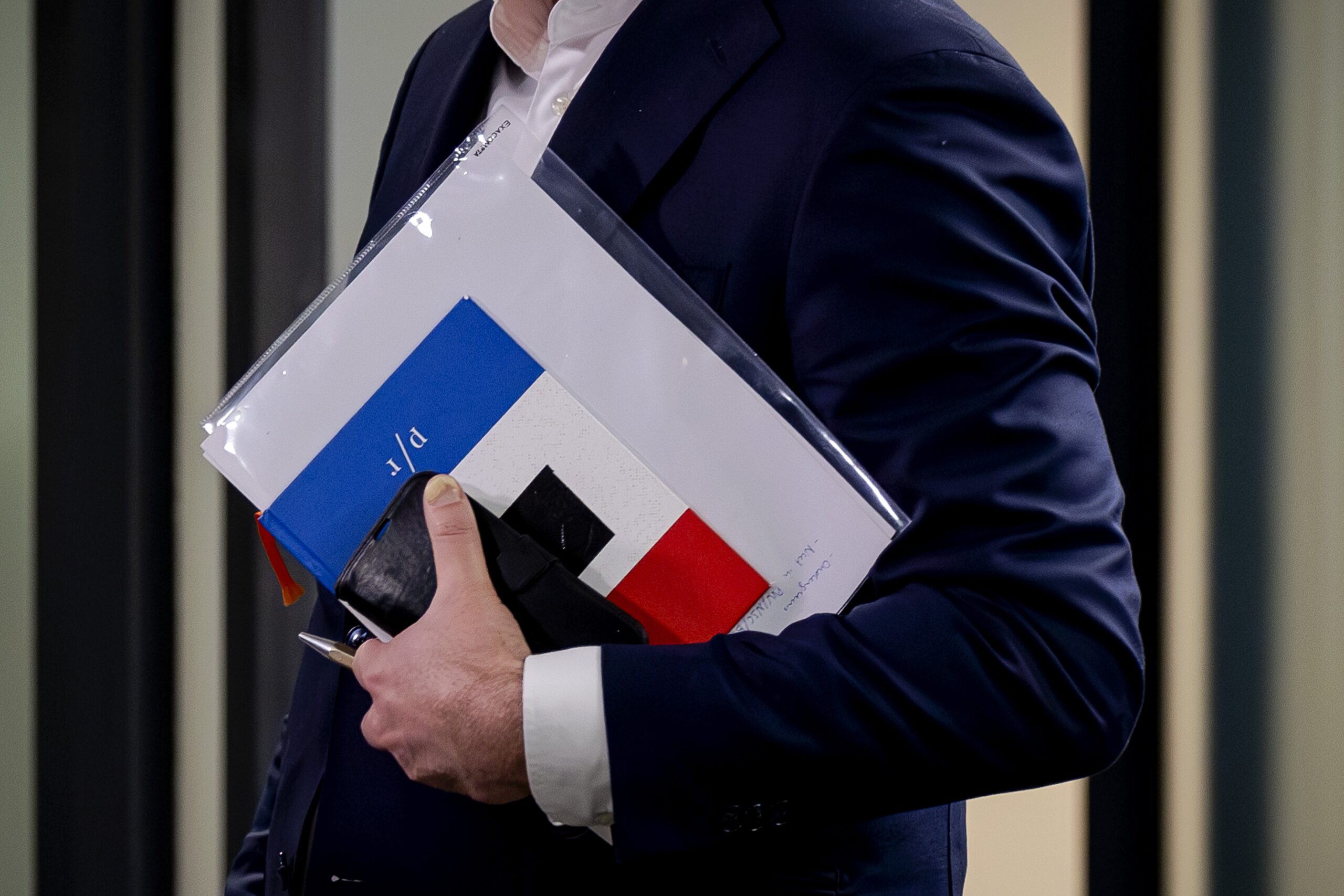Leaders to meet in pairs in attempt to kickstart coalition talks
Gordon Darroch
Coalition scout Ronald Plasterk will hold further talks with the four party leaders who could potentially form a right-wing government on Tuesday in an attempt to reconcile their differences.
Plasterk will chair one-on-one meetings between Geert Wilders, leader of the far-right PVV, and Dilan Yesilgöz of the right-wing liberal VVD, and between Wilders and Caroline van der Plas, leader of the farmers’ party BBB.
Pieter Omtzigt, founder of the new centre-right party NSC, also said on Monday he was willing to meet Wilders and Yesilgöz separately, but he is not ready to start negotiations to form a government.
Omtzigt said last week he wanted guarantees from Wilders that his party would respect the constitution and the Netherlands’ obligations under international treaties before coalition talks could begin.
But on Monday he was photographed leaving a meeting with Plasterk carrying a notepad with the words “not in PVV/NSC/BBB” visible, suggesting he had ruled out a combination of the three parties in advance.
Asked what he intended to discuss with Wilders, Omtzigt said: “We’ll see. But sometimes it’s good to talk with another person present.”
Wilders: “constructive”
Wilders said he had had a “good conversation” with Plasterk and would take a “positive and constructive” attitude into further talks. He would not be drawn on critical messages about Omtzigt that he shared on X last week, including one from a supporter that called the NSC leader a “slippery Catholic” (katholieke gluiperd).
Yesilgöz said immediately after the election that her party would not join a cabinet with the PVV, but was prepared to support a minority “centre-right” coalition through a confidence and supply deal.
However, she has come under pressure from some in her own party to reconsider her stance. An opinion poll published at the weekend stated that one in six VVD voters would switch to the PVV if fresh elections were held and the party would lose one-third of its 24 seats.
“I understand this is a live issue for the voters,” she said. “What I really hear from people is that they really want us to get going, and that’s what we have told the scout.”
Van der Plas, whose party won seven seats but has a crucial 16 votes in the Senate, said she supported the idea of one-on-one talks.
She said she had urged Plasterk to ensure that the NSC and VVD leaders “respect the outcome of the election”, in which the PVV became the largest party with 37 seats.
“If you want something to be taken off the table, you first have to sit down at the table,” she said.
Thank you for donating to DutchNews.nl.
We could not provide the Dutch News service, and keep it free of charge, without the generous support of our readers. Your donations allow us to report on issues you tell us matter, and provide you with a summary of the most important Dutch news each day.
Make a donation